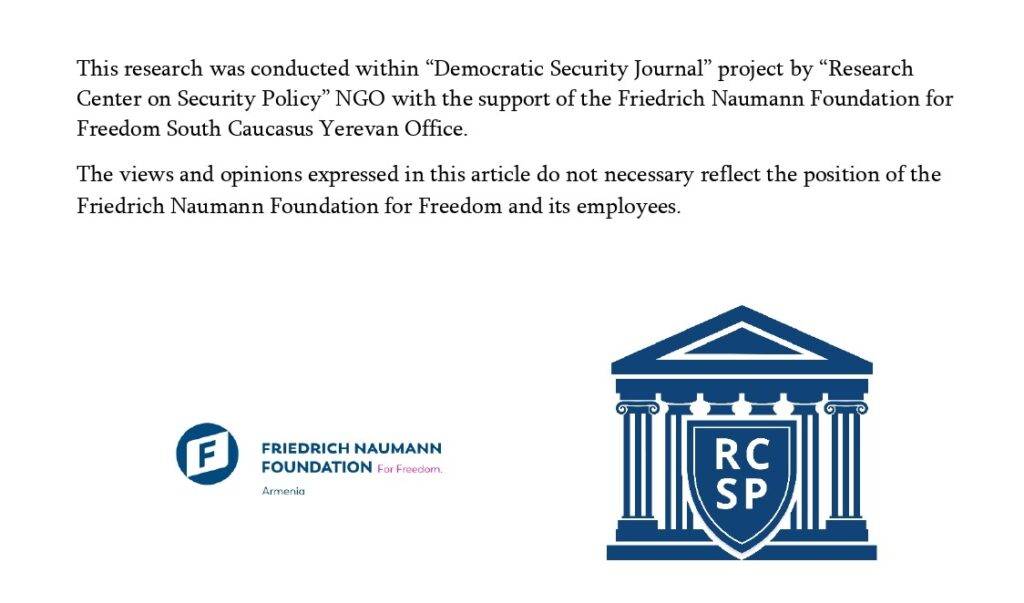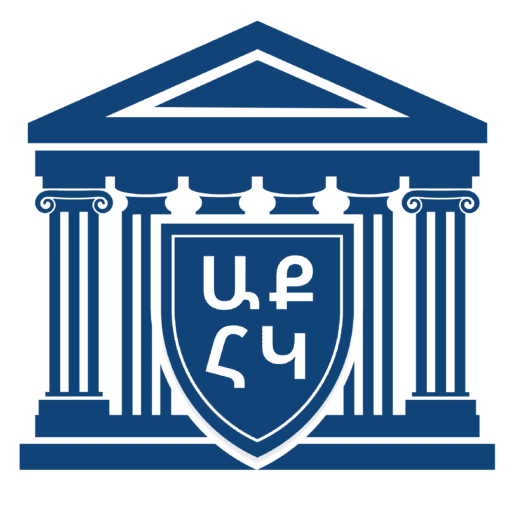General Information
On March 30, snap elections for the City Council were held in Gyumri. In a separate analysis[i], we had previously addressed the reasons behind the elections, their background, and certain episodes from the campaign. Nine political forces participated in the elections, five of which managed to surpass the electoral threshold. Voter turnout stood at approximately 42.6% of eligible voters. This represents a relatively high figure, especially considering that in Gyumri, where elections are conducted via a proportional representation system, turnout has historically never exceeded 40%. Notably, the previous elections in 2021 set a record for the lowest participation rate, registering only 24%.
The comparatively higher turnout can be attributed to two key factors. First, the diversity and ambitions of the participating political forces. In Gyumri, traditionally, most of the influential political figures—excluding only two or three who indirectly supported one candidate or another—were actively engaged in the electoral process. The second factor is administrative in nature: a certain degree of filtration and verification of the voter registry ensured that the list was composed of “actual” voters.
| Election | Number of Political Forces | Voter Turnout Percentage |
| 2016 | 11 | 36.2% |
| 2021 | 10 | 24% |
| 2025 | 9 | 42.6% |
Overall, the elections were held in a calm atmosphere; however, several long-standing issues once again came to the fore. Before addressing them in more detail, it is important to underline that local self-government (LSG) elections in Armenia have always been characterized by a less political and more localized, personalized logic.
Election Campaign and Voting Day
An overarching observation of both the pre-election campaign and election day itself highlights a significant systemic issue: the inadequate functioning of the proportional representation system in LSG elections. During the campaign, there were numerous instances where representatives of electoral alliances or candidates on their lists struggled to recall which political parties constituted their respective alliances. In many cases, campaign posters around the city failed to indicate which party or alliance they belonged to—often displaying only the candidate’s photo and name, and at best, the number of the ballot. This is largely due to the deep public distrust in political parties, which in turn perpetuates a vicious cycle in which candidates attempt to distance themselves from party affiliations.
Although Armenia’s party system and the use of proportional representation in LSG elections are still in a developmental phase, an analysis of the current situation reveals that the efforts being made remain insufficient.
Despite the generally calm campaign atmosphere, the pre-election period was not without its concerning episodes. The problematic use of administrative resources remains an ongoing issue, particularly during the pre-election period, when unplanned improvement, renovation, or other public works are suddenly launched using funds from local or state budgets. Another continuing concern is the widespread use of hate speech, which can be attributed to both ruling and opposition forces.
The declaration of campaign funds by participating political forces also remains problematic. This issue is further exacerbated by the insufficient responsiveness of the oversight body, which often fails to register concerns over incomplete declarations or the lack of transparency in campaign financing. The same lack of adequate response applies to instances of abuse of administrative resources.
In the final days of the campaign, reports emerged that representatives of the “Mother Armenia” and “Our City” alliances had been detained[ii] for allegedly offering electoral bribes and violating the prohibition on charitable acts during the campaign. Since 2018, cases of vote-buying have significantly declined, and it is crucial that timely and lawful responses continue to deter such practices from becoming normalized once again.
On election day itself, a number of minor, non-systemic violations were also observed. A significant portion of the issues was related to electoral administration, primarily due to the insufficient professionalism of precinct electoral commission (PEC) members. In this context, the Central Electoral Commission and relevant territorial electoral commissions face a substantial task ahead of the 2026 parliamentary elections: namely, improving the training and preparedness of PEC members.
To gain a more detailed understanding of the incidents that occurred during the pre-election campaign and on election day, as well as the nature of the violations, one may consult the interim statements released by observation missions[iii] [iv]. In this context, it is also important to address another issue that emerged during these elections: the presence of non-conscientious and unprofessional observers. Specifically, this refers to the “Hayakve” observation mission, which, instead of maintaining neutrality during both the campaign and election day, engaged in campaigning within polling stations, at times disrupting the work of election commissions. This kind of conduct could pose a greater risk during nationwide elections, given their larger scale and complexity.
Election Results and the Mayoral Race
The votes of approximately 47,000 residents who participated in the elections were distributed among the nine participating political forces as follows:
| Political Party | Votes Received | Percentage (%) |
| “Civil Contract” | 17188 | 36.2 |
| Communist Party of Armenia | 9727 | 20.5 |
| “Living Country” | 1695 | 3.5 |
| “Mother Armenia” | 2904 | 6.1 |
| Labor Socialist Party of Armenia | 652 | 1.3 |
| “Euro Alliance” | 2113 | 4.4 |
| “Democratic Alternative” | 1407 | 2.9 |
| “Our City” | 7380 | 15.5 |
| “My Strong Community” | 3739 | 7.8 |
The political parties that were able to overcome the 4% threshold for parties and the 6% threshold for alliances include “Civil Contract,” the Communist Party of Armenia, “Our City,” “My Strong Community,” and “Mother Armenia.” Interestingly, during the election campaign, all forces combined spent about 117 million AMD, almost 50% of which was spent by the “Civil Contract” party. The latter is the leader both in terms of votes received and the amount of money collected and spent. At the same time, the Communist Party of Armenia, which ranked second in terms of votes, spent the least amount of money during the campaign period, with expenditures not even reaching 1 million AMD.
According to the votes received, the 33 mandates of the Gyumri City Council have been distributed among the five forces that overcame the electoral threshold as follows:
“Civil Contract” party: 14 mandates;
Communist Party of Armenia: 8 mandates;
“Our City” alliance: 6 mandates;
“My Strong Community” party: 3 mandates;
“Mother Armenia” alliance: 2 mandates.
Since no force holds the majority of mandates—17 mandates—according to the law, the person in the first position on the list of any force cannot be considered elected as the head of the community. In accordance with the Electoral Code, in such cases, a vote is held in the city council for the election of the community head, in which the candidate who receives the majority of votes from the council members is elected. If no candidate receives a majority of votes, a second round is held, in which the candidate with the highest number of votes is elected as the community head. Not long after the official announcement of the election results, two political forces—“My Strong Community” and “Mother Armenia”—declared their support for Vardan Ghukasyan, the opposition candidate who had received the highest number of votes, endorsing him as their nominee for community head[v].
Nevertheless, the votes of the city council members from the aforementioned two forces, along with those of the Communist Party of Armenia, did not reach the 17-mandate majority threshold required for the election of a community head. A few days after these endorsements, Martun Grigoryan—the lead candidate on the list of “Our City” alliance, which had secured the third highest number of votes—announced[vi] that city council members would cast the necessary number of votes in favor of Vardan Ghukasyan. In Grigoryan’s statement, one could also detect a certain regret regarding the fact that the two political forces had rushed to back the second-place candidate, thus foreclosing the possibility of alternative collaborations and the nomination of a different mayoral candidate.
On April 16, during a session of the Gyumri City Council, Vardan Ghukasyan was elected community head with 18 votes in favor from the 18 council members present. No other candidates had been nominated, and the “Civil Contract” faction did not attend the session. The absence was later explained by the top candidate of “Civil Contract,” who stated that governance in Gyumri was doomed to fail, that a political crisis was inevitable, and that it was necessary to move toward new, snap elections[vii].
Conclusion
In summation, several key directions merit consideration. First and foremost, the distribution of political forces within the city council, the evident polarization, and the contradictions between state and local authorities all indicate a heightened risk of a governance crisis in Gyumri. It is likely that the fate of this council composition and the duration of its mandate will depend directly on the outcome—or even the preparatory phase—of the 2026 parliamentary elections.
Persistent concerns remain regarding incidents of hate speech, misuse of administrative resources, and behavior that fails to meet legal standards—issues that are very likely to resurface during the parliamentary elections as well. Equally troubling are the reported cases of vote-buying, which, one can only hope, were isolated and will be prevented in the context of national elections. However, it must be emphasized that while in Gyumri, state and law enforcement resources were mobilized to ensure order, those same resources may prove insufficient on a national scale, due to the significantly broader scope.
From a political standpoint, these local elections must be logically distinguished from the national ones, and any attempt to project their outcomes onto the parliamentary elections should be avoided. Traditionally, local elections have centered around personalities and individual authority rather than political agendas. Although the opposition forces that surpassed the electoral threshold managed—despite their internal contradictions—to seize control of the city’s governance, it is worth remembering that the “Civil Contract” had never held autonomous power in Gyumri. In this regard, the upcoming elections in Yerevan might align more closely with the logic of a national contest, at least because the electorate there is nearly eight times larger than in Gyumri, and the political stakes are significantly higher. Moreover, a vast segment of the Yerevan electorate continues to search for a preferred political force and candidate—something that was not observed in Gyumri.
Tigran Mughnetsyan
[i] https://rcsp.am/entry/6751/gyumri-hamaynqum-avaganu-artahert-yntrutyunnerin-yndaraj/
[ii]https://www.anticorruption.am/hy/news/view/380?fbclid=IwY2xjawJpuFlleHRuA2FlbQIxMQABHnDo40JvbKZ1FJgQj4F7m0PNy-Vw0cTgYHZpLXOYTVlJfQpgv00_9HnBipbf_aem_4I_oanaAHnh3UisikBYUyw
[iii] https://www.transparency.am/hy/publication/pdf/393/11847
[iv] https://hcav.am/ind-obs-31-03-2025/
[v] https://www.civilnet.am/news/825579/%d5%b6%d5%a1%d5%ad%d5%b6%d5%a1%d5%af%d5%a1%d5%b6-%d5%ba%d5%a1%d5%bf%d5%af%d5%a5%d6%80%d5%a8-%d5%a3%d5%b5%d5%b8%d6%82%d5%b4%d6%80%d5%ab%d5%b8%d6%82%d5%b4-%d5%a8%d5%b6%d5%a4%d5%a4%d5%ab%d5%b4%d5%a1%d5%a4%d5%ab%d6%80-%d5%a5%d6%80%d5%af%d5%b8%d6%82-%d5%b8%d6%82%d5%aa-%d5%ba%d5%a1%d5%bf%d6%80%d5%a1%d5%bd%d5%bf-%d5%a7-%d5%b4%d5%ab%d5%a1%d5%b6%d5%a1%d5%ac-%d5%be%d5%a1%d6%80%d5%a4%d5%a1%d5%b6-%d5%b2%d5%b8%d6%82%d5%af%d5%a1%d5%bd%d5%b5%d5%a1%d5%b6%d5%ab%d5%b6/?fbclid=IwY2xjawJfYnxleHRuA2FlbQIxMQABHtw3yyGEr_xMgdcbo3oNvtW8UaSsirRrrIxkmK_xakHNECiMnOqIw0QJv29S_aem_PFcFvmipliKJZ3Ags_QVmw
[vi] https://www.azatutyun.am/a/martoun-grigoryani-dashinky-anhrazhesht-tvov-kvener-kta-vardan-ghoukasyanin/33373752.html
[vii] https://www.1lurer.am/hy/2025/04/16/1/1297557


